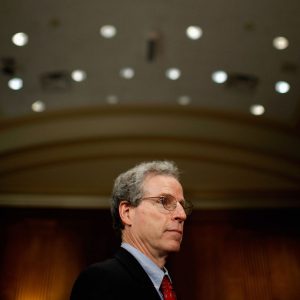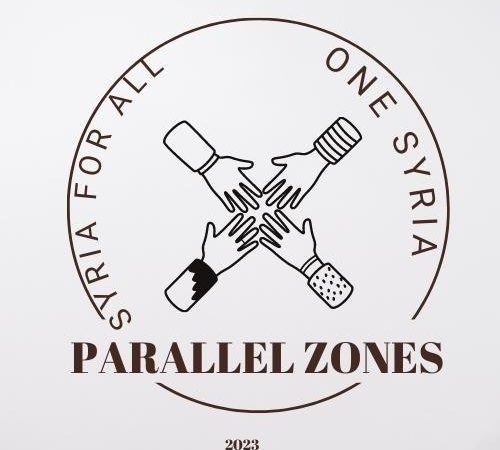What does the letter of dissent reflect?
Frustration at the State Department has come to a boil. People don’t write in the Dissent Channel every day. The cessation of hostilities in Syria has broken down completely. The bombings of hospitals in Aleppo and Idlib are a violation of every human norm—and that’s not including the barrel bombs and the chemical weapons. The effort to get a political deal is going nowhere. The Assad government has refused to make any serious concessions. It won’t let in food aid, in violation of U.N. resolutions. And the Americans are watching it all happen. So the Dissent Channel message is a reflection of frustration by the people who are responsible for conducting policy on the ground. I felt that way when I left—and that was after Geneva II, in January-February, 2014.
We all learned from Iraq that regime change is not the way to bring about positive political change. In the case of civil war, there needs to be negotiation between the opposition and the government. The question is how you increase the likelihood that it will succeed. And ever since Secretary Clinton and Sergei Lavrov concluded the communiqué, in June, 2012, Administration policy has failed to create the conditions necessary to succeed.
Do you blame President Obama?
I don’t want to assign blame to any individual. There have long been disagreements in the Administration about how to proceed in Syria. The President is not the only one who has been reluctant to use all tools available to create pressure. One of the things we have seen in the Dissent Channel is frustration that those who advocate continuing the course keep calling for a strategic objective, but don’t put forward a means to attain it. Hope is not a policy. It can’t be the only basis of policy if there are major political consequences in nato countries. The policy of the U.S. government since the end of the Second World War has been that Europe needs to unify to be strong and to avoid more internal conflicts. This goes back to Harry Truman’s time—to be strong, to resist pressure from Moscow, and to avoid falling into more world wars. Now the very unity of Europe is being called into question, in no small part because of the refugee problem out of Syria. This is beyond Syria. That we did not expect in 2012.
What impact is the letter likely to have?
I see no indication from the long interviews by President Obama or [Deputy National Security Adviser] Ben Rhodes that they are prepared to do a deep rethink on the Syria question. So the impact of the letter may not be so great.
Five years later, what is the state of play in Syria?
The war has spiralled from a popular uprising demanding changes in the Syrian security establishments to an international conflict that has drawn in regional and international powers and destroyed large portions of Syria. It has also destabilized countries in Europe as well as spawned the most virulent form of Islamist extremism yet seen.
Back in 2012, we in the State Department anticipated that the war was going to become nastier and ever more sectarian, but no one understood how far the Syrian government was willing to go to maintain its control in Damascus. No one foresaw that half the country would be displaced from their homes. No one foresaw that huge refugee flows would become issues for our European allies. We didn’t anticipate that the Al Qaeda organization would split and produce an even more virulent form—that a more extreme form would come to control the eastern portion of Syria going into Iraq.
What would you advocate?
A reinvigorated effort to secure negotiations for a new government with strategic patience in the fight against the Islamic State. The Administration has relied on Kurds, which will pay short-term dividends in recapturing some territory from the Islamic State. That is good. But it will also sow certain seeds of future ethnic conflict between Syrian Arabs and Syrian Kurds.
The dissent message makes clear that the focus on the Islamic State will not win the hearts and minds of enough Syrian Sunni Arabs to provide a long-term, sustainable solution to the Islamic State challenge in Syria. The Syrian Sunni Arab community views the Assad government as a greater problem than the Islamic State. Syrian human-rights organizations have pointed out that that government has killed seven times more civilians than isis has.
Fast-forward two years. In 2018, Raqqa may be retaken. isis may lose Deir ez-Zor. Will the Islamic State still be there? Yes, but as an insurgency.
The danger is that, just as the Palestinian center collapsed, so will the moderate Syrian center collapse. That’s the message from the Dissent Channel. It says we have to win over the Sunni Arab community to defeat isis.
Do you really think Assad is willing to negotiate a political transition?
No, as long as he thinks he can win militarily, even it takes twenty years.
Eleven months ago, in July, 2015, it was different. Assad gave a speech to the nation. He said the Army is tired. We don’t have enough soldiers. A lot of soldiers have dodged the draft. We don’t have enough forces to defend all places and we are having to withdraw. His forces were retreating in northwest Syria and southern Syria—not in front of the Islamic State but in front of the more moderate opposition and the Nusra Front. Even the Alawite heartland [of Assad’s sectarian faction] was coming under fire. He was bitter about that. The speech showed he understood that he was losing on the ground–and only when he had the mentality that losing would he be willing to make compromises.
When Russian intervention began, five weeks after that speech, his position changed a hundred and eighty degrees. He said, “We will not negotiate with terrorists—and all armed opposition are terrorists. We will retake every inch of territory. We will fight on until total victory.”
The issue is how to get Assad back to the mentality of July, 2015, so we can get a ceasefire that is durable.
Do you think the opposition is capable of winning?
The real question is: Can they be unified enough to present a relevant and cogent program and alternative? There are many indications that they can. But it also requires that foreign patrons of different groups agree themselves on how a unified command should operate. It doesn’t help for us to increase aid to some groups, with other countries aiding different groups, so they don’t coördinate.
Will this conflict change the face of the Middle East?
We haven’t got to the point that the breakup of countries is a certain outcome. But it’s gotten to the point that it’s becoming increasingly difficult to see how countries like Syria and Iraq will be able to maintain their unity. And the starting point for that will be an independent Kurdish state. Smart policy should be thinking about how to make that a positive process, through negotiations rather than through ethnic fightin
The Obama Administration has long been divided over what to do about Syria. The crisis produced one of the biggest differences between President Obama and Hillary Clinton, his first Secretary of State. The policy chasm has only deepened during the five years of conflict, which has now reportedly claimed almost half a million lives. The State Department acknowledged tersely on Friday that more than fifty American diplomats had recently submitted a letter of complaint about U.S. policy in Syria through its Dissent Channel, a sort of complaint box through which employees can voice their disagreement with official policy without fear of reprisal. Travelling in Europe, Secretary John Kerry told reporters, “I think it’s an important statement and I respect the process very, very much, and I will probably meet with people or have a chance to talk when we get back.”





